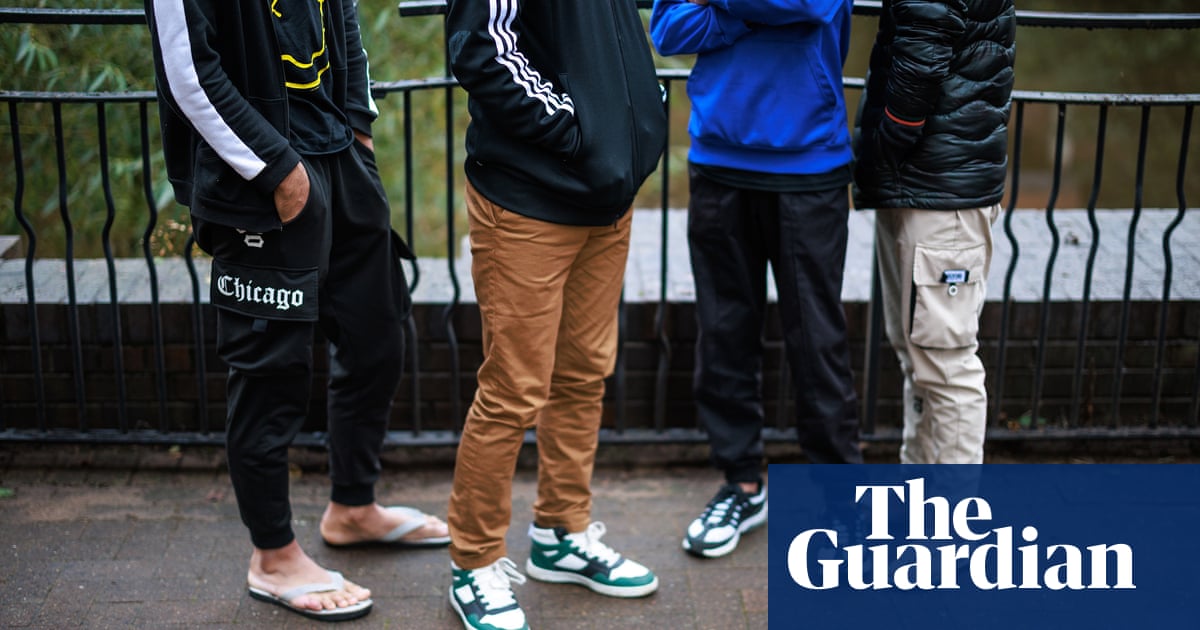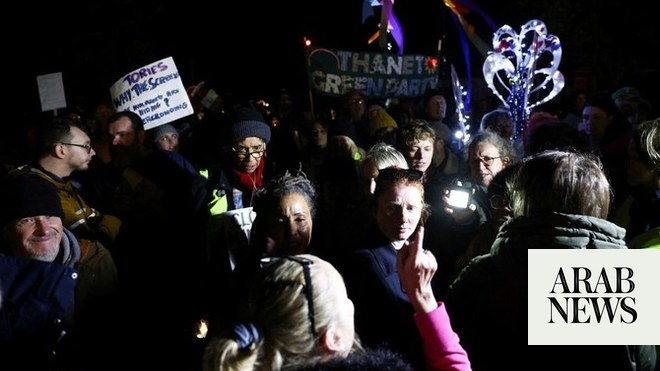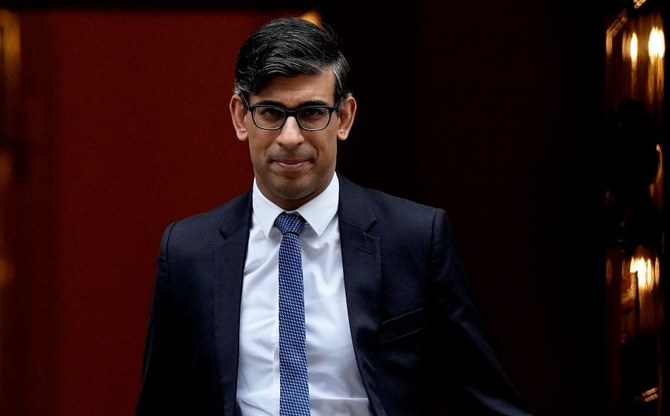
Refugee Council warns that children are frequently incorrectly identified as adults by British border officials
Threats heightened by a new cost-cutting policy forcing two migrants to share a hotel room designed for one
LONDON: Children seeking asylum in the UK are being forced to share hotel rooms with adults as a result of the Home Office’s new “maximization” program, The Guardian newspaper reported on Monday.
The policy aims to double the capacity in hotels used to house refugees by putting two people in rooms designed for a single occupant, in an attempt to reduce the costs of accommodating migrants while their asylum requests are processed.
The Refugee Council has warned that child refugees are frequently incorrectly identified as adults at UK borders, which exposes them to serious safety risks and the dangers have been heightened by the new room-sharing policy.
The Guardian spoke to seven young asylum seekers living in Yorkshire who said they told border guards they were 16 or 17 when they arrived in the UK, but were all wrongly classified as adults by officials who recorded their ages as ranging from 22 to 26. Refugee Council workers who interviewed the young people, and verified their identity documents where available, believe mistakes were made.
Faisal, a 16-year-old who arrived in the UK in August on a small boat from Eritrea, said he was given a document that correctly noted the day and month of his birth but incorrectly stated the year as being 10 years earlier than it really was, thereby recording his age as 26.
A French-Arabic interpreter had been assigned to his case rather than a Tigrinya-speaking interpreter, and as a result Faisal said he struggled to understand what was being said to him.
“Maybe the interpreter gave them the wrong information. They made me 10 years older; I couldn’t understand it,” he told The Guardian.
Faisal said he does not feel comfortable in the shared room in an adult hotel he was sent to and has felt suicidal.
“I’m sharing with a man who’s about 30,” he added. “I feel lost. Sometimes I put my head under the bedding and cry. I miss my mom.”
Three Afghan teenagers said they had digital photos of their national identity cards that proved they were children but were unable to show them to officials at the border because their phones had been confiscated during the screening process on arrival.
The age of one of them, Mohammed, whose identification papers show he is 16, was recorded as 22 at the border.
“They put my birthday down correctly, but they put 2001 instead of 2007,” he said. “I said: ‘That’s not the right year,’ and they said, ‘Don’t worry, a case worker will sort it out for you later.’”
But Mohammed said he was unable to have the mistake corrected and was put in a hotel room with a 40-year-old man who smokes at the window, attracting the attention of hotel security guards.
It was not clear to the seven boys in Yorkshire exactly how officials at the border assessed their ages. Only one of them was aware of being given what he thought was a physical examination.
Waqas, a 16-year-old who had a photograph of his Afghan identity papers on his phone, was classified as being 22 by Home Office staff after he arrived on a small boat in September. He said they asked to open his mouth and then examined his forehead and palms.
“They gave me a piece of paper putting my age as 22. I didn’t understand it at the time because I don’t speak English,” he told The Guardian.
He was also placed in a hotel room with an adult.
“The adults in the hotel are drinking and making a lot of noise. We don’t feel safe,” he said.
The children arrived in the UK at a time of renewed political debate over the assessment of the ages of adolescents. UK Home Secretary Suella Braverman has said she is determined to crack down on incidents of adults pretending to be children when they enter the UK to get more favorable treatment.
The 2023 Illegal Migration Act proposes to introduce “scientific assessments,” including X-rays, to help determine age, and establish a new National Age Assessment Board. Officials will treat a claimant as an adult “if their physical appearance and demeanor very strongly suggests that they are significantly over 18 years of age.”
However, the Royal College of Paediatrics and Child Health has warned that the use of X-rays in this way is unethical and can be “widely inaccurate.”
A Home Office spokesperson told The Guardian it could not comment on the boys’ individual cases but added: “It’s vital that we remove incentives for adults to pretend to be children in order to remain in the UK.
“Between January 2016 and the year ending June 2021, 58 percent of asylum applicants whose age was disputed were found to be adults.”
According to the Refugee Council, however, its own age-assessment project in 2021 found that out of 233 young people who were initially identified by the Home Office as “certainly” being adults, it was later confirmed that only 6 percent actually were.












